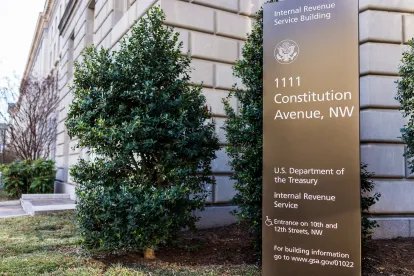A Treasury regulation provides that a researcher performing technological research for its customer is not entitled to federal income tax credits for the cost of the research if the researcher does not retain substantial rights in the research.[1]
This rule may eventually be adjudged invalid. Nonetheless, if the researcher intends to claim research tax credits, the researcher and the customer should negotiate contract provisions that unambiguously treat the transaction as a sale of a product rather than a transaction in which the researcher also sells research services to the customer.
If feasible, the contract should not be drafted so that no one is entitled to the research tax credits.
Two cases, one pending in the Fifth Circuit – United States v. Grigsby, Docket No. 3:19-CV-596 (5th Cir. Dec. 2, 2022), on appeal from the Middle District of Louisiana (2022 WL 11269773 M.D. La. Oct 19, 2022), and the second pending in the United States Tax Court, Perficient , Inc. v. Commissioner, No. 7600-18 (U.S. Tax Ct. April 19, 2018) – present the same issue: whether federal income tax credits for research expenditures may be claimed by the researcher that actually performed research activities for its customers.[2]
Although the industries in which the taxpayers in Perficient and Grigsby engaged are different – Perficient is a software developer and Grigsby is a construction company – the reason for the tax disputes appears to have a common source: an argument by the IRS that the taxpayers may not claim tax credits for their research activities because they sold research services to their customers and did not retain substantial rights to exploit the research results.
A product manufacturer is entitled to tax credits for research if the manufacturer’s agreement with its customers provides for sale of the product even if the manufacturer must perform research to design and develop the product. The manufacturer is treated as selling a product or the result of the research because payment by the customers is contingent on the success of the manufacturer’s research.[3] A simple example is the sale of a car. The amount of research performed by a car maker to design the car is enormous, but the agreement with car buyers does not purport to sell the technological information resulting from the research to them. The carmaker, alone, is at risk for designing and developing a car that meets the customers’ wishes. The carmaker is entitled to the credits for its research.
On the other hand, if the researcher sells technological information resulting from the research to its customer and does not retain substantial rights in the research, the researcher is not entitled to the tax credits for research because the researcher is “funded” by its customer.[4] For example, a car maker pays a third party for battery research. The agreement between them provides that the car maker buys and owns the research. The carmaker, not the researcher, is entitled to the tax credits for its payments for the research if the agreement is made prior to the performance of the activities, the car maker has a right to the research results, and the car maker has to bear the research expense even if the research is unsuccessful.[5] The provisions are intended to fit together so that only one party – the researcher or its customer – is entitled to tax credits for the same research activity.
In Grigsby, the taxpayer agreed to construct real property for its customers and to transfer documentation to them relating to the construction processes. The taxpayer claimed research credits for construction processes that it asserted resulted from research. One of the agreements in issue related to the construction of a facility to produce methanol. The construction agreement for this facility typified the provisions on which the IRS focused. It provided not only for the sale of the real property improvement, but also for the transfer by the taxpayer to the customer of “data, analyses, reports, plans, procedures, manuals, drawings, specifications, calculations, or other technical tangible manifestations of ... [Grigsby’s] efforts.”[6] The district court found that the taxpayer sold these research efforts, retained no substantial rights in them, and therefore could not claim tax credits for it expenditures for the research that it conducted to fulfill the contract. The rationale of the district court is that the taxpayer’s research was funded by its customers.
In the Perficient case, the agreements in issue had similar provisions transferring documentation from the taxpayer to its customers. For example, the agreement between the taxpayer and its customer, Micron, provided that the taxpayer shall develop, design, build, test, and deploy a redesigned Micron employee portal Intranet . . .. Ex. 41-J, § 1. The Micron Consultant Agreement ... grants ownership to Micron of all intellectual property "developed, conceived, or first reduced to practice in connection with and during the course of the performance of Services pursuant to this Agreement ....”[7]
The taxpayers in Grigsby and Perficient are arguing that they sold products. The Government is arguing that they sold product and research services, and the taxpayers’ expenditures for the research are not creditable because they did not retain substantial rights in the research sold to the customers.
Until the issue is conclusively resolved, an agreement for the sale of a product that the seller must first design and develop should be drafted so as to avoid the sale of the research to the seller’s customer – if that is the parties’ intent. If a customer does not plan to exploit the research activities by using the research with respect to its own customers, the purchase agreement should make clear that the customer is paying only for the “product” but not for research data or other manifestations of the research. Moreover, if the customer’s intent is to preclude the researcher from selling identical property to the customers’ competitors, sales by the researcher might be appropriately limited with respect to its future customers in a manner that does not permit the IRS to infer otherwise.
Current drafting practice may well result in no one getting the credit. If the customers’ payments to the taxpayers in Grigsby and Perficient were contingent on the success of the research, the customers also would not be entitled to credits for their payments to the researchers,[8] an unfavorable outcome in which the value of tax credits are completely lost.
Contracting officers should confer with their tax advisers to achieve an objective that accurately expresses the parties’ intent without unnecessarily sacrificing research credits.
FOOTNOTES
[1] Treas. Reg. §1.41-4A(d)(2).
[2] The customers’ entitlement to research tax credits is not in issue in the cases.
[3] Treas. Reg. §1.41-4A(d)(1).
[4] Treas. Reg. §1.41-4A(d)(2).
[5] Treas. Reg. §1.41-2(e)(2).
[6] United States v. Grigsby, 2022 WL 11269773, at 15 (M.D.La., 2022).
[7] Commissioner Brief at 9-10 (May 11, 2021).
[8] Treas. Reg. §1.41-4A(d)(2). The regulation eventually may be adjudged invalid because of defects in Treasury’s procedure to publish it or because it incorrectly interprets the statutory exclusion for “funded” research.






 />i
/>i

